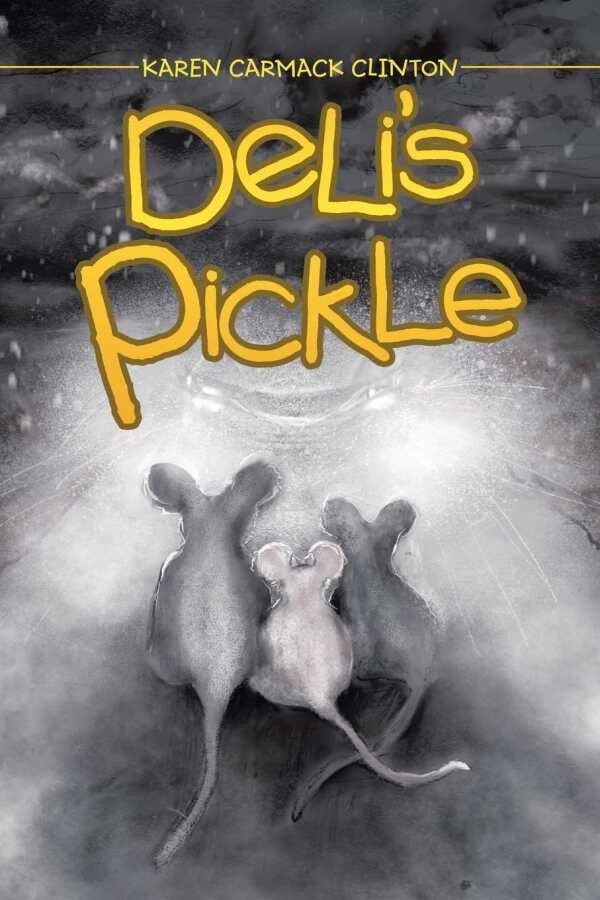Deli’s Pickle
Deli’s Pickle is a sweet fable about the value of being considerate to others.
A petulant mouse has a risky encounter with humans and learns the virtue of kindness in Karen Carmack Clinton’s encouraging chapter book Deli’s Pickle.
Deli loves to boss around her siblings and her friend, Lily. She wants to spend time together, but on her own terms. She dictates which games they’ll play and which roles others should take, and she meets others’ refusals with displeasure. She’s thoughtless toward her mother too.
When Jackie, a child passerby, spies Deli near the road, she insists that her father bring the mouse home as a pet. There, Deli witnesses Jackie’s impulsive behavior. Jackie throws tantrums, picks on a housemaid, and renames Deli “Ralph.” Deli begins to recognize how Jackie’s bad actions mirror her own mistreatment of others. With the help of Jackie’s kind sister, Terrie, and other mice, Deli plans an escape and promises to mend her ways once home.
The early chapters establish Deli’s flaws through a repetitive pattern: She makes demands of her brothers, Lily, a turtle, and a group of birds, all of whom are unimpressed by her brusque approach. But then Deli meets a snake, who is all too willing to play with her for its own devious aims. This chance for Deli to learn a lesson is shortchanged, though, when the encounter proves to be a cautionary dream. Once Deli is caged inside of Jackie’s room, more compelling plots unfold.
Because Deli’s misbehavior is a strong focus, her characterization is limited in service of the moral lessons around her. Other mice are just sketched in, too, with the exception of Deli’s great-grandfather, Grump, who encourages the mice to form search-and-rescue teams for Deli. Indeed, Grump teaches Deli via gentle redirections.
Meanwhile, the human sisters are characterized in terms of their stark contrasts: Jackie is loud and mean, while Terrie’s voice is “calm and sweet.” Their clear differences make them somewhat obvious representations of traits that are deemed either unfavorable or ideal to model. The sisters’ bedrooms further convey their opposing natures: Jackie regards Terrie’s room as “disgustingly clean.”
Colorful British colloquialisms in the housemaid’s speech pep up the clear text. In contrast, Deli’s italicized thoughts clutter the prose too much; she poses questions to herself and makes observations whose points have already been inferred. The black-and-white chapter illustrations feature adorable, furry mice and repeat at regular intervals. Occasional illustrations depict Deli and others in action throughout her misadventure.
In the sincere chapter book Deli’s Pickle, a mouse in captivity learns how to better appreciate her own home.
Reviewed by
Karen Rigby
Disclosure: This article is not an endorsement, but a review. The publisher of this book provided free copies of the book and paid a small fee to have their book reviewed by a professional reviewer. Foreword Reviews and Clarion Reviews make no guarantee that the publisher will receive a positive review. Foreword Magazine, Inc. is disclosing this in accordance with the Federal Trade Commission’s 16 CFR, Part 255.

